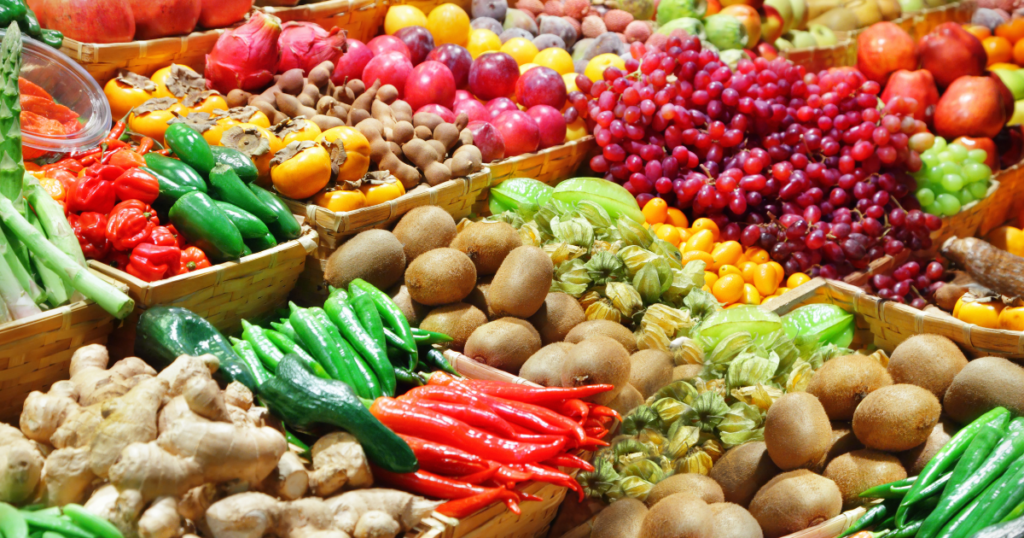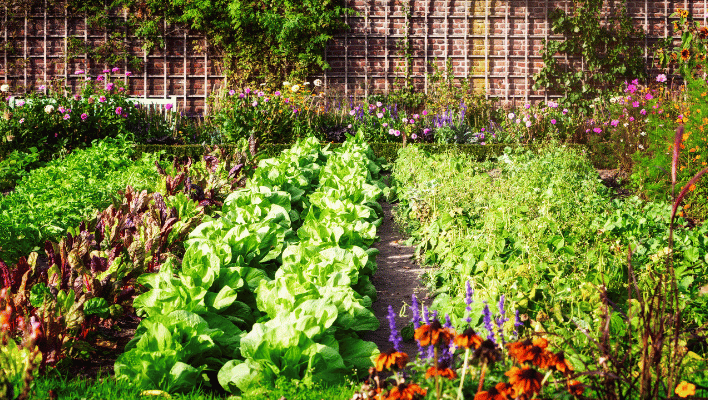Table of Contents
A) Dietary Needs and Nutritional Imbalances in Birds: Understanding and Addressing
Introduction
Birds’ health and wellbeing can be significantly impacted by nutritional abnormalities. To ensure that these feathered animals are receiving the best nutrition possible, it is essential to recognize and manage their dietary demands. We will go deeply into the dietary needs of birds in this comprehensive book, and we’ll also offer insights on how to correct and prevent nutritional imbalances in birds. Let’s start this educational trip on avian nutrition and discover ways to help our avian buddies.

Proper Nutrition is Important for Birds
Like all other living things, birds need a healthy diet to thrive. In order to preserve their general health, vigor, and lifespan, proper nutrition is essential. A diet lacking in vital nutrients can cause a variety of issues, such as impaired immune function, decreased fertility, and an elevated risk of illness. It is essential to comprehend the particular nutritional requirements of birds in order to protect their health and avoid nutritional imbalances.
A Closer Look at Nutritional Imbalances in Birds
Nutritional imbalances occur when a bird’s diet is either extremely rich or too low in key essential components. These imbalances could be brought about by inadequate or ineffective feeding methods, subpar bird food, or limited access to a varied diet. To understand the impacts of the most common nutritional imbalances in birds, let’s look into these imbalances.
Risk to Our Feathered Friends from Protein Deficiency
A crucial macronutrient that is essential to the health of birds is protein. It is necessary for immune system health, immune system function, muscle growth, feather growth, and general body tissue growth and repair. Poor feather quality, diminished muscle strength, slowed wound healing, and impaired immunological responses can all result from inadequate protein intake. It is essential to give birds high-quality protein sources including lean meats, insects, eggs, and legumes in order to alleviate their protein shortage.
Mineral and vitamin deficiencies: The Unseen Causes
A wide variety of vitamins and minerals are necessary for birds’ physiological processes. Depending on the particular nutrient that is deficient, vitamin deficiencies can show up in a variety of ways. For instance, a vitamin A deficit can cause visual problems, breathing problems, and reproductive disorders. Weakened bones and irregularities in eggshells can be brought on by calcium and vitamin D deficits. Fresh fruits, vegetables, leafy greens, and vitamin and mineral supplements created especially for birds must all be included in a varied diet that is provided.
Finding the Right Balance in Fatty Acid Imbalance
The health of birds depends on fatty acids, particularly omega-3 and omega-6 fatty acids. These vital fatty acids assist brain function, control inflammation, and maintain healthy skin and feathers. Omega-3 to omega-6 fatty acid imbalances can cause problems like dry, flaky skin, low feather quality, and weakened immune systems. These imbalances can be avoided by offering a balanced diet that include both types of fatty acid-rich foods, like fish, nuts, and seeds.
Imbalance of Calcium and Phosphorus: Laying Firm Foundations
Together, calcium and phosphorus, two essential elements, help birds maintain strong bones, beaks, and eggshells. Dietary imbalances in calcium and phosphorus can cause skeletal deformities, weakening bones, and soft-shelled eggs by upsetting the body’s mineral balance. Dark leafy greens, eggshells, and cuttlefish bones are crucial calcium-rich foods to provide, while also ensuring a balanced intake of phosphorus through seeds, nuts, and grains.
B) The Function of Fruits and Vegetables in Avian Nutrition
Fruits and vegetables are abundant sources of fiber, antioxidants, critical vitamins, and minerals, all of which are crucial for preserving a bird’s health. A wide range of nutrients required for their physiological processes are received by include a variety of vegetables and fruits in their diet.
The vitamins A, C, and K as well as the minerals calcium and iron can all be found in abundance in leafy greens like kale, spinach, and collard greens. Essential vitamins, fiber, and antioxidants are found in fruits including apples, oranges, and berries. Bird owners can assist in providing for the nutritional requirements of their avian companions by including a variety of fruits and vegetables.
Balance in a Fruit and Vegetable-Based Diet
While fruits and vegetables are essential parts of a bird’s diet, it is critical to strike a balance in order to prevent nutritional imbalances. Here are some recommendations to make sure your bird companion is eating a balanced diet of fruits and vegetables:
- The key is variety: To give a spectrum of nutrients, serve a large selection of fruits and vegetables. Change up your menu options frequently to keep things fresh and interesting.
- Think about color: Vegetables and fruits come in a variety of colors, each indicating a different nutrient profile. To make sure your bird gets a variety of vitamins and minerals, aim for a rainbow of hues on their dish.
- Include both raw and cooked options: While some fruits and vegetables are best eaten raw, cooking some can improve nutritional absorption and digestion. To suit your bird’s preferences, try out various cooking techniques.
- Foods that are poisonous to birds should be avoided, including avocado, chocolate, coffee, and onions. Before adding any new foods to your bird’s diet, do your homework on them.
- The key is moderation: while fruits and vegetables are essential, they shouldn’t make up the entire diet. To ensure a well-rounded nutritional intake, add other crucial elements such premium pellets, seeds, and protein sources.
Herbal and Natural Supplements for Optimal Avian Nutrition: Aviterium Nutri Boost and Fit Drop
With Aviterium Nutri Boost and Fit Drop, learn about the effectiveness of herbal and natural supplements for optimal avian nutrition. promote liver detoxification and natural vitamin and mineral absorption from meals. Find out more about these supplements and how they can help your feathery friends’ general growth and liver health.
Avian nutrition is essential to the general health and happiness of our feathered friends. A well-balanced, nutrient-rich diet is necessary for their optimum development and vitality. Herbal and natural supplements can assist avian nutrition and particular areas of their health in addition to a balanced diet.
In this post, we’ll examine the outstanding advantages Aviterium of Nutri Boost O Drop and Fit sDrop and Nutri Boost O Drop, two amazing supplements made to support ideal avian nutrition. While Nutri Boost operates as a liver treatment, assisting in liver cleansing, Fit Drop promotes general growth. The high-quality components used in the formulation of these herbal and natural supplements tap into the healing potential of nature to improve the health and wellbeing of birds.
Frequently Asked Questions
- Q: Can I feed my bird only vegetables and fruits?
A: While vegetables and fruits are important, they should be part of a balanced diet that includes other essential components like pellets, seeds, and protein sources. - Q: How can I ensure my bird’s vegetable and fruit-based diet is balanced?
A: Offer a variety of vegetables and fruits, rotate their options, and aim for a rainbow of colors. Consult with an avian veterinarian or nutritionist for specific dietary recommendations. - Q: Are there any vegetables or fruits that are toxic to birds?
A: Yes, some foods like avocado, chocolate, caffeine, and onion are toxic to birds. Ensure you research any new food items before introducing them to your bird’s diet. - Q: Can herbal supplements replace a balanced diet for my bird?
A: Herbal supplements should complement a balanced diet rather than replace it. Consult with an avian veterinarian or herbalist for appropriate supplement recommendations. - Q: How can I introduce herbal supplements to my bird’s diet?
A: Start with small amounts and observe your bird’s response. Gradually increase the dosage as recommended, and monitor for any adverse reactions. - Q: Can I grow my own organic vegetables and fruits for my bird?
A: Yes, growing organic vegetables and fruits can be an excellent way to ensure a fresh and pesticide-free food source for your bird. Just ensure they are bird-safe options.
Conclusion
A variety of fruits and vegetables must be included in a bird’s diet together with other necessary ingredients in order to achieve a balanced diet. Owners of birds may ensure adequate nutrition and promote the general health of their feathered companions by offering a balanced diet made up primarily of vegetables and fruits that is supplemented with herbal and natural supplements. Always seek advice from avian veterinarians or nutritionists for particular feeding suggestions that are suited to the requirements of your bird.

